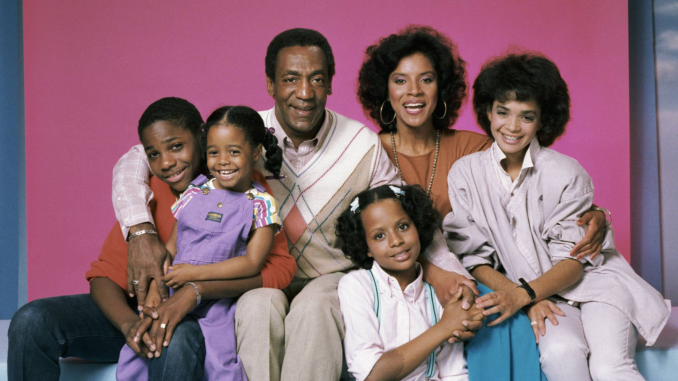
When “The Cosby Show” first aired in 1984, it quickly became more than just another sitcom. It shattered television stereotypes, broke cultural barriers, and became a beacon of representation for African American families. A show that began as a light-hearted family comedy evolved into one of the most influential television series of all time. This article explores how “The Cosby Show” revolutionized TV, its cultural impact, and how it remains a powerful symbol of progress in the entertainment industry.
The Groundbreaking Representation:
Before “The Cosby Show,” the portrayal of African American families on television was often limited to stereotypes or marginalized roles. Shows like “The Jeffersons” and “Good Times” offered positive depictions, but they still often dealt with issues of poverty, struggle, or the lower working class. In contrast, “The Cosby Show” portrayed the Huxtable family as an upper-middle-class household, where both parents were educated professionals: Dr. Heathcliff Huxtable, a successful obstetrician, and his wife, Clair, a respected attorney. The show offered a refreshing depiction of African Americans living in a harmonious, loving, and successful family environment.
The decision to create a show centered on a highly successful Black family was a groundbreaking choice at the time. Bill Cosby, who created the show, envisioned a sitcom where African Americans were shown in a positive light—normalizing the idea that Black families could be just as educated, affluent, and loving as any other. The Huxtables became a role model for viewers and a symbol of possibility for Black families across the United States.
Cultural Impact:
“The Cosby Show” went beyond just changing television. It became a cultural phenomenon. By highlighting the importance of education, family values, and togetherness, the series shifted the narrative surrounding African Americans in popular culture. The show provided a platform for discussing important social issues like parenting, higher education, career aspirations, and race, without resorting to preachiness. The success of the show proved that there was an audience for stories centered on Black experiences, leading to the creation of more diverse programming.
It also addressed issues of race subtly but powerfully. While “The Cosby Show” rarely explicitly addressed racism, it took on significant cultural discussions simply by existing. For example, the show broke down the notion that a successful Black family was an anomaly. It encouraged the idea that success is not limited by race, that it is attainable for anyone willing to work for it. The Huxtables were aspirational, relatable, and real—yet they never conformed to traditional stereotypes about Black families or Black experiences.
Bill Cosby’s Vision:
At the helm of the show was Bill Cosby, a man with a vision to present a world where the struggles and aspirations of African Americans were portrayed with dignity and nuance. Cosby, an accomplished comedian and actor, wanted to do more than simply entertain; he wanted to change the way people thought about race and class in America. He succeeded in doing so with a show that was fun, humorous, and lighthearted, but also deeply meaningful.
Cosby understood the power of media to influence perceptions and worked tirelessly to ensure that “The Cosby Show” reflected the best qualities of the Black community. He sought to make the show both entertaining and educational, focusing on themes of personal growth, achievement, and responsibility. The Huxtables, particularly Cliff Huxtable, became role models for millions, showcasing what it meant to be loving, supportive, and successful. Cosby’s charisma and talent brought authenticity to the role, making Dr. Huxtable one of television’s most beloved characters.
Audience Reception:
The public’s reception of “The Cosby Show” was overwhelmingly positive. The show quickly became a ratings hit and enjoyed immense success throughout its eight-season run. Audiences embraced the Huxtables, finding their family dynamics relatable and their lives aspirational. The show’s clever humor, family-oriented plots, and memorable catchphrases made it a fan favorite.
Critics also praised the show for its portrayal of African American life. “The Cosby Show” appealed to a wide range of viewers, both Black and non-Black, because it transcended race in its universal themes of family, love, and personal growth. It wasn’t just a show for Black viewers—it was a show for everyone.
Conclusion:
“The Cosby Show” was more than just a groundbreaking television program. It was a cultural touchstone that left an indelible mark on television, influencing countless shows that followed. It gave a voice to the African American community and changed the way Hollywood viewed the potential of Black stories. Its legacy endures in the shows that continue to reflect diverse, multi-dimensional families and in the continued pursuit of breaking down barriers in the entertainment industry. Even after its conclusion, “The Cosby Show” remains a timeless reminder of how television can change the world.
